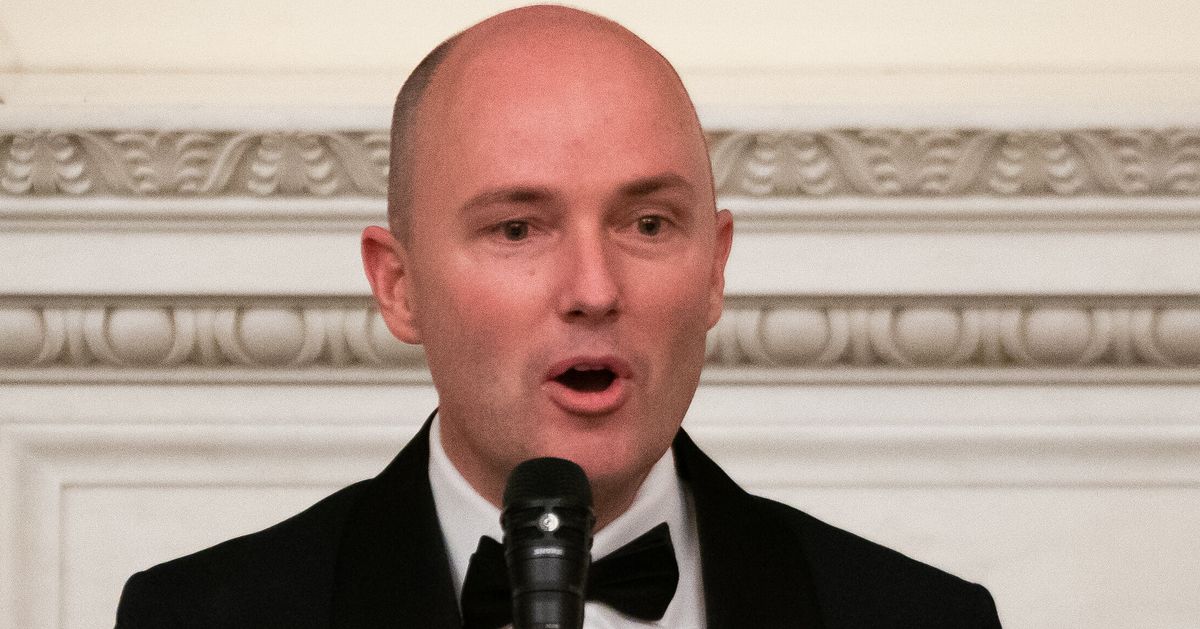
The law, titled Sex-Based Designations for Privacy, Anti-Bullying and Women’s Opportunities, defines “male” and “female” by a person’s genitals rather than gender identity and requires that transgender people use bathrooms that correspond with the gender they were assigned at birth, with exceptions only for those who can prove that they have received gender-affirming surgery or that their gender identity aligns with the sex on their birth certificate.
It applies to bathrooms, shower rooms and locker rooms in public schools from kindergarten though 12th grade but only to showers and locker rooms in state universities and other government-owned buildings. Violations could result in loitering charges, and government-owned institutions could also be fined up to $10,000 per violation per day.
“We want public facilities that are safe and accommodating for everyone and this bill increases privacy protections for all,” Cox said Tuesday in a statement.
The initial version of the bill, House Bill 257, barred transgender people from using bathrooms that align with their gender identity at any state facility that receives public funding, which was later revised by the state Senate to apply the prohibitions only to public schools and government-owned facilities, NBC News reported.
The bill passed the Senate on Friday before being sent to Cox’s desk to sign.

Supporters of the measure, including lead sponsor Rep. Kera Birkeland (R), argued that the restrictions are a necessary safety measure to ensure that “predators seeking to harm women” are barred from entering bathrooms and changing rooms.
“Let’s be clear, sexual assault knows no boundaries. Keeping men from women’s spaces is an appropriate and much needed boundary in Utah and across America,” Birkeland wrote on the X social media platform last week. “Nobody is calling out the transgender community for crimes against women.”
But opponents say that this rhetoric and such bans are an attack on transgender people.
“This bill is an invasion of the privacy of Utahns. No student should be denied access to the bathroom that aligns with who they are. No one should fear harassment in the most private of settings. Period,” Human Rights Campaign President Kelley Robinson said Friday in a statement.
The American Civil Liberties Union of Utah expressed similar concerns and had urged Cox to veto the bill.
“This bill is not necessary. Current Utah law already provides criminal penalties for harassment and assault in restrooms and public spaces,” the ACLU wrote Tuesday in a letter to the governor. “HB 257 does not provide additional protection for women in these spaces. All it does is invite scrutiny of people who are transgender or perceived to be transgender when they are lawfully going about their lives.”
The Utah law is the first anti-transgender bathroom bill to be signed this year and the 13th law in the country to limit transgender people’s bathroom use, NBC News reported.
Nearly 400 anti-LGBTQ bills are pending in states across the country this year alone, following an alarming 510 laws enacted last year, according to the American Civil Liberties Union.
Anti-trans bathroom bills are the most common among these laws, according to the Human Rights Campaign. States such as North Carolina, Iowa and Alabama already have such bans in place, The New York Times reported.




